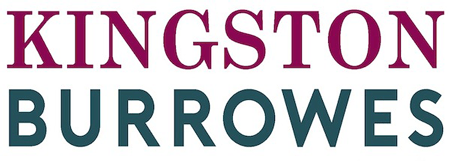The freedom of setting up as a sole trader and being your own boss is inevitably one of the reasons many people choose to do it, but it’s not without significant responsibility and administrative burden.
However, we are here to help with this simple guide to tax and accounting for sole traders. From the registration process, to the tax regulations, and how to stay organised, we have covered the essentials. And of course, if you can’t find the answer to your questions below, our down to earth and knowledgeable team will be more than happy to help.
Setting up as a Sole Trader
The first step on your journey to business freedom, is to establish what structure you would like your business operation to take and setting up as a sole trader is just one of the options available to you.
You may also want to consider setting up your own limited company or even creating a partnership with another individual. There are advantages to each, dependent on your specific circumstances and priorities. One of the most key considerations though, is that as a sole trader you will be personally responsible for any losses that your business makes (whereas the responsibility lies with the company should you set up a Limited Company).
Assuming that you decide to run your own business as an individual and you are self-employed (i.e. working for yourself rather than someone else) this probably indicates that you should setup as a sole trader.
The Gov.UK website suggests that you setup as a sole trader when the following apply:
- you earned more than £1,000 from self-employment between 6 April 2021 and 5 April 2022
- you need to prove you’re self-employed, for example to claim Tax-Free Childcare
- you want to make voluntary Class 2 National Insurance payments to help you qualify for benefits
To setup as a sole trader, you simply need to register for self-assessment so that HMRC knows that you will need to pay tax. The process is fairly straightforward and can be completed online through the Government portal.
How to name your sole trader business
You can either use your own name for trading purposes or you can choose another name for the business, however there are several rules you will need to note. The name should not:
- Include ‘limited’, ‘Ltd’, ‘limited liability partnership’, ‘LLP’, ‘public limited company’ or ‘plc’
- Be offensive or harmful in any way
- Be the same as an existing trade-mark or infringing on any registered copyright.
Gov.UK provides a useful guide to company incorporation and names, and identifies words which you may need permission to use etc.
If you are concerned about anyone else trading under the same name as your business, then it is suggested that you register your name as a trademark.
How do I pay tax as a sole trader?
As a sole trader it is important that you take responsibility for reporting your own income/profits and paying the relevant tax, as this will not be done for you as it would have been if you were employed by a company.
You will need to file an annual Self-Assessment tax return, and from April 2024, you will need to do this in accordance with the requirements of Making Tax Digital for ITSA.
All individuals are entitled to a Personal Allowance of £12,570 (tax year 2022/23) which effectively means that you can earn this amount of profit without being taxed. Any earnings above this will be taxed at the relevant income tax bands, of which there are three:
- Basic rate tax is 20% and applies to income up to £50,000
- Upper rate tax is 40% and applies to income between £50,501 and £150,000
- Additional upper tax is 45% and applies to income above £150,000
Sole Trader National Insurance Contributions
You must register for self-assessment within three months of becoming self-employed, so that HMRC can make sure you are paying National Insurance. (Note, if you are moving to the UK to setup a business, you will first need to apply for a National Insurance number).
There are two types of National Insurance that potentially apply to sole traders/self-employed individuals and in 2022/23 these are as follows:
- Class 2 for profits in excess of £6,725 a year
- Class 4 for profits in excess of £11,909 a year
Does VAT apply to sole traders?
If your annual turnover is more than £85,000, you will need to register for VAT, and if your turnover falls below this, you can register voluntarily, which may be beneficial if you sell to other VAT registered businesses and wish to reclaim VAT.
Bear in mind that the Making Tax Digital rules now apply to all VAT registered business (regardless of turnover) which means that you will need to submit your VAT return using MTD Compatible Software.
Business bank accounts and getting organised
Legally you are not required to open a dedicated bank account for your business if you are operating as a sole trader because technically you and your business are considered to be one entity.
It is advisable however to have separate bank accounts as you can more easily manage your business expenses and finances with a dedicated business account.
Most major banks will have business account options and it’s worth reviewing what each offers to identify the one most suited to your requirements, as it might not necessarily be the same bank that you hold your personal account with.
In addition to having a separate bank account, there are other things you can do to make sure you keep on top of your business finances.
Our top tips for managing your business finances as a sole trader include:
Maintain records – Track your business incoming and outgoings. You could do this using simple spreadsheet software, or for minimal cost, you could invest in MTD compatible software. As noted above, if you are VAT registered you will need this anyway to file your VAT return.
Keep your receipts & invoices – These provide an important record of your outgoings, and you will be glad of them when it’s time to file your self-assessment return. There are different options available to do this, from simply filing them, to using a business app which takes a photo of each receipt or invoice as and when you receive them. Again, the latter is a good time saving option later down the line when it comes to completing your tax return.
Claim for business expenses – There are certain business expenses which you may be eligible to claim for as a sole trader. This includes a number of home working business expenses such as travel, office equipment, utility costs and more.
Save for your tax bill – One of the most important recommendations is that you consistently save for your end of year tax bill. By saving around 20% of your earnings each month, you should be well prepared once your tax return has been filed and your tax bill is due for payment. There should be no big shock or sudden hole in your finances at the end of the year if you follow this advice.
Support with Sole Trader Accounting
If you have specific questions relating to self-employer/sole trader accounts which we have not covered here, then please feel free to get in touch for a no obligation discussion.
We have more than ten years’ experience of supporting a range of self-employed individuals with their accounting requirements, from bookkeeping support, self-assessment tax returns, and personal tax planning.




